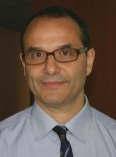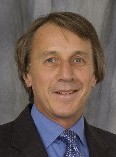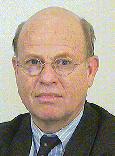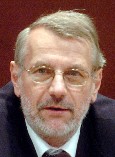Alessandro Lanza, Luiss University, Italy |
 Alessandro Lanza, Luiss University, Italy Alessandro Lanza, Luiss University, Italy, and Euro-Mediterranean Center on Climate Change, Italy, is graduated in Political Economics at the University of Sassari (Italy) and holds a Ph.D. in Economics at the University College of London (UK).
At present, he is Independent Consultant on Energy & Climate Change. In 2010 he was a Lead Author of the Fifth Assessment Report of the IPCC (Intergovernamental Panel on Climate Change).
From 2007 to 2011 he was Eni Corporate University’s Chief Executive Officer.
From 2000 to 2007 he was Eni’s Chief Economist and Executive Director of the Fondazione Eni Enrico Mattei. From 1990 to 1997 he was Research Director of the Fondazione Eni Enrico Mattei.
From 1993 to 1997 he was General Secretary of the European Association of Environment and Resources Economics. From 1997 to 2000 he was Principal Administrator of the Energy and Environment Division of the International Energy Agency of the OECD in Paris, and Lead Author of the IPCC in 1999 for the Third Assessment Report. In 2007 he has been appointed Senior Expert on Climate Change Issues by the Italian Prime Minister. In 2010 he has been appointed Lead Author of the IPCC for the Fifth Assessment Report.
During his scientific career he was Professor of Energy Economics at the University of Turin (1990-1997), Research Fellow at the Oxford Institute for Energy Studies of the Oxford University (1989-1990) and Researcher at the Joint Research Centre, European Union, at ISPRA (1986-1987) and at the Istituto di Economia delle Fonti di Energia (IEFE) of the Bocconi University of Milan (1985). In addition to this he fulfils the role of professor of Prospettive Macroeconomiche globali and Global Economic Challenges at LUISS, Rome.
|
Ray Kopp, Resources For the Future, US |
 Raymond Kopp, Resources For the Future, US, is Senior Fellow and Director of the Center for Climate and Electricity Policy at Resources for the Future. He has been a member of the RFF research staff since 1977 and has held a variety of officer and management positions within the institution. Raymond Kopp, Resources For the Future, US, is Senior Fellow and Director of the Center for Climate and Electricity Policy at Resources for the Future. He has been a member of the RFF research staff since 1977 and has held a variety of officer and management positions within the institution.
His current studies focus on U.S. domestic greenhouse gas mitigation and adaptation policy, U.S. foreign policy as it pertains to international negotiations on climate change, and deforestation and degradation in tropical countries. His expertise has influenced the design of state and federal policies as well as those of foreign governments.
Kopp also has a long-standing research interest in cost-benefit analysis and integrated assessment. He led the first examination of the cost of major U.S. environmental regulations in a full, general equilibrium, dynamic context using an approach that is now widely accepted as state-of-the-art. Working with colleagues he developed techniques for assigning value to environmental and natural resources that do not have market prices and has assisted numerous governments, intergovernmental organizations and private entities conducting damage assessments for environmental claims.
|
Bert Metz, European Climate Foundation, The Netherlands |
 Bert Metz, European Climate Foundation, The Netherlands, is a Fellow at ECF and member of the Advisory Council. He focuses particularly on science and policy issues. He brings extensive experience as former co-chairman of the Climate Change Mitigation Working Group of the United Nations Intergovernmental Panel on Climate Change (IPCC) from 1997-2008. He also was climate change coordinator of the Ministry of Environment of the Netherlands and chief negotiator for the Netherlands and the European Union on the UN Framework Convention on Climate Change and the Kyoto Protocol, as well as head of the Global Sustainability and Climate Change Division of the Netherlands Environmental Assessment Agency. In addition, he taught at Ahmadu Bello University in Nigeria and served as Environmental Counsellor at the Netherlands Embassy in Washington DC. Currently he is also a member of a few scientific advisory boards of international institutes and projects. Bert Metz, European Climate Foundation, The Netherlands, is a Fellow at ECF and member of the Advisory Council. He focuses particularly on science and policy issues. He brings extensive experience as former co-chairman of the Climate Change Mitigation Working Group of the United Nations Intergovernmental Panel on Climate Change (IPCC) from 1997-2008. He also was climate change coordinator of the Ministry of Environment of the Netherlands and chief negotiator for the Netherlands and the European Union on the UN Framework Convention on Climate Change and the Kyoto Protocol, as well as head of the Global Sustainability and Climate Change Division of the Netherlands Environmental Assessment Agency. In addition, he taught at Ahmadu Bello University in Nigeria and served as Environmental Counsellor at the Netherlands Embassy in Washington DC. Currently he is also a member of a few scientific advisory boards of international institutes and projects.
He holds a Masters degree in Chemical Engineering from Delft University of Technology, The Netherlands, and received his PhD in Biotechnology at the same university. He has published a large number of IPCC books and scientific articles and in 2010 published a book “Controlling Climate Change” with Cambridge University Press. He received the Environmental Economics Practioner Award from the European Association of Environmental and Resource Economists in 2009.
|
H. H. Rogner, International Atomic Energy Agency, Austria |
 Hans Holger Rogner, International Institute for Applied Systems Analysis, Austria Hans Holger Rogner, International Institute for Applied Systems Analysis, Austria and Royal Institute of Technology (KTH), Sweden, received a MSc in industrial engineering (1975) and a PhD in energy economics (1981). He started his career at the International Institute for Applied Systems Analysis (IIASA) in Laxenburg, Austria concentrating on global energy system modeling, energy resource and technology assessments. From 1990-1997 he directed the System Analysis Group's work on hydrogen energy systems at the Institute for Integrated Energy Systems, University of Victoria, Canada. He joined the International Atomic Energy Agency (IAEA) in 1997 as Section Head, Planning and Economic Studies Section leading work on comparative assessments of different energy demand and supply options, nuclear energy, climate change and sustainable development.
Dr. Rogner served several times as a lead or convening lead author for the Intergovernmental Panel on Climate Change (IPCC) including the 5th Assessment Report, collaborated on major global energy analyses (including the IIASA-World Energy Council (WEC) "Global Energy Perspectives"), and for the "World Energy Assessment", a joint effort of the United Nations Development Programme, the UN Department of Economic and Social Affairs and WEC. He is currently also contributing to the Global Energy Assessment (GEA) coordinated by IIASA with participation of several UN organizations. Throughout his career, the impact of science and technology on the availability of, and access to, energy resources has been a persistent component of Dr. Rogner's research activities.
After his retirement from the IAEA in late 2012, he re-joined IIASA as a guest scholar and joined KTH.
|
|